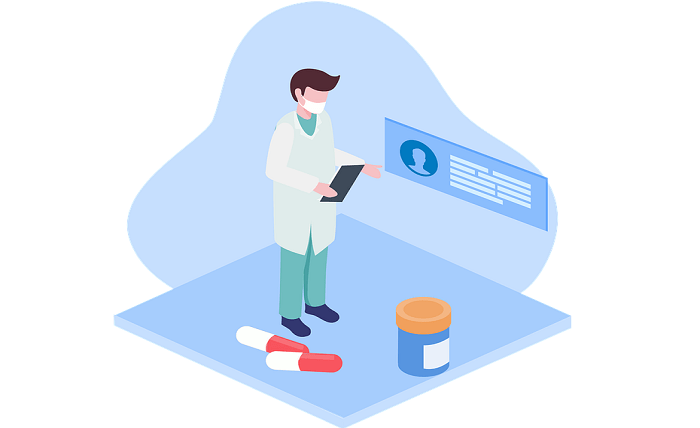HIPAA regulations emphasize the importance of protecting patient privacy and security for medical clinics. Maintaining individual autonomy and security requires the protection of personal medical information. In an increasingly digitalized world, where data can be rapidly and widely shared. This security has become more crucial. HIPAA provides an essential lifeline in this matter. It defends medical clinics against inadvertently disclosing patients’ personal information. Similar to a reliable fortress enclosing the private specifics of an individual’s health records. HIPAA regulations bring peace of mind to both the patient and the provider.
HIPAA: A Vital Tool in Protecting Patient Information
To safeguard individuals’ sensitive health information, HIPAA, also called the Health Insurance Portability and Accountability Act of 1996, imposes standards to prevent its unauthorized use or disclosure. Readers can understand the implications of HIPAA for those in the medical industry through articles on platforms like Netsec.news. They can also gain knowledge about the importance of preserving patients’ data privacy rights. Medical clinics can ensure greater compliance with HIPAA mandates and further advance their commitment to safeguarding patients’ rights and privacy through this knowledge. Thus, they will be more prepared to navigate the intricate legal framework that encompasses safeguarding healthcare data. Medical clinics can confidently move on to the next step with these insights in hand. Exploration of key aspects of HIPAA is done for their practice.
Key Aspects of HIPAA for Medical Clinics
A federal law called the HIPAA of 1996 includes multiple provisions. The objective of these provisions is to maintain the privacy and security of protected health information (PHI). HIPAA includes three primary rules: the Privacy Rule, Security Rule, and Breach Notification Rule. By setting standards, the Privacy Rule governs how covered entities can use or disclose PHI. To ensure the confidentiality, integrity, and availability of ePHI, the Security Rule mandates the use of suitable administrative, technical, and physical safeguards. The Breach Notification Rule outlines how covered entities must notify affected individuals in case of any breach in their PHI, finally.
Privacy Rule:
The adherence of medical clinics to the Privacy Rule is crucial. It supplies a complete structure for safeguarding patient data against unauthorized access. The Privacy Rule necessitates that medical clinics.
1. Establish safeguards to protect patient health information;
2. Implement administrative, physical, and technical security measures;
3. Create policies and procedures, such as implementing the use of HIPAA forms, for the use and disclosure of protected health information; and
4. Train employees on HIPAA regulations in order to ensure compliance.
Patient privacy is respected by this important rule. It also supplies an extra shield against potential threats like hacking or identity theft. Taking these steps ensures medical clinics provide their patients with peace of mind. Their personal health information is secure and will be known. For additional safety precautions, medical clinics must also conform to the Security Rule. The following section will cover this point.
Security Rule:
To comply with the Security Rule, ensuring the integrity, confidentiality, and availability of confidential medical information is vital. By implementing administrative, physical, and technical safeguards, healthcare organizations must protect patient data stored or transferred electronically. This comprises limiting access to authorized personnel only; monitoring activities involving protected health information (PHI); regularly testing security systems; ensuring secure transmission of PHI over the Internet. and encrypting all PHI which is stored on computers. Furthermore, organizations should have established policies for handling and informing about potential security breaches. Patients’ privacy can be protected, and their confidential medical information can be kept secure by implementing these steps.
Breach Notification Rule:
Following the Security Rule, the Breach Notification Rule is a significant aspect of HIPAA compliance for medical clinics. Notification is mandatory for healthcare providers in the event of a breach of unsecured protected health information (PHI); they should inform affected individuals, the Department of Health and Human Services (HHS), and possibly the media. Visually represented in the following list are key points regarding this rule:
1. A breach must be reported within 60 days of discovery
2. Affected individuals must be notified in written form
3. HHS must also be notified via an online portal or paper form
4. In some cases, media outlets may need to be informed
HIPAA compliance for medical clinics relies heavily on the importance of the Breach Notification Rule. It guarantees that any breaches of PHI are addressed promptly and properly to maintain the protection of patient privacy and security. Additionally, this rule functions as a deterrent to potential hackers because of its rigorous demands on notification in the case of a breach. So, patients’ personal data is thus further protected with an additional layer. By following these rules, medical clinics can gain substantial advantages by being HIPAA compliant and providing increased safety and security measures for their patients’ PHI.

The Pros of HIPAA Compliance for Medical Clinics:
The Health Insurance Portability and Accountability Act can offer various benefits to medical clinics if followed. One result is strengthened patient trust because HIPAA compliance reflects a dedication to protecting personal health data. Moreover, following the rules strictly can assist in lowering the possibility of facing legal and monetary consequences. Violating HIPAA regulations could cause this to happen. In addition, adherence to HIPAA standards by implementing appropriate policies and procedures for managing patient information can result in improved operational efficiency.
Enhanced Patient Trust:
Patients and medical providers develop an increased sense of trust through strict adherence to HIPAA regulations. The patient benefits from this not only. It is additionally advantageous for the clinic since it permits them to establish stronger relationships with their clients. In particular, a medical clinic that follows HIPAA regulations can anticipate the following:
1. Increased patient loyalty
2. Greater likelihood of referrals
3. An enhanced reputation in the community
Following HIPAA regulations enables medical clinics to establish a secure environment where patients feel safe and protected. This makes sure they keep returning for care and recommending the clinic’s services to others. This solidified trust ensures that everyone involved – from clinicians to patients – can experience increased freedom and peace of mind, knowing that their information is effectively secured and safeguarded from any potential external threats or breaches. Reducing any risk of legal or financial penalties down the line is aided by transitioning into this new era of security. Quality healthcare standards are maintained simultaneously.
Decreased Chance of Facing Legal and Financial Penalties:
HIPAA compliance creates enhanced patient trust, reinforcing the idea of patient privacy and security. Doing so also decreases the chance of medical clinics facing legal and financial penalties for breaking HIPAA regulations. A medical clinic failing to comply with HIPAA guidelines can result in civil or criminal penalties. This includes large penalties. In addition, when a clinic neglects to ensure patient privacy, it could cause damage to its reputation as patients might have reservations about seeking treatment. Their operations incorporate effective HIPAA protocols. Health centers can evade these hazards and prioritize delivering quality healthcare services without facing any negative repercussions. Improved operational efficiency can be achieved by having greater confidence in complying with HIPAA regulations.
Improved Operational Efficiency:
Medical clinics can increase operational efficiency by implementing effective HIPAA protocols. Following HIPAA regulations can result in several advantages for medical clinics, including:
Streamlined processes effectively reduce the time spent on administrative tasks.
Patient records have improved accuracy thanks to the updated security systems.
Diminished need for expensive resources like IT personnel and physical documents
Patient’s privacy and data security are protected by HIPAA compliance, in addition to improved operational efficiency. This increased efficiency grants medical practitioners more time to focus on providing quality care for their patients. This leads to everyone involved having a better experience overall.
Conclusion
HIPAA’s importance for medical clinics cannot be underestimated. To keep sensitive information safeguarded, healthcare professionals must prioritize patient privacy and security. After successfully attaining HIPAA compliance, medical clinics can be confident that they have implemented all the necessary measures to safeguard the confidential information of their patients. In addition, following federal regulations assists in establishing trust with patients and fosters a secure and safe environment. Accordingly, implementing HIPAA policies is vital for any medical clinic that aims to provide a high level of care while showing the utmost respect for patient rights. By strictly following these guidelines, both healthcare providers and patients are protected from any potential risks. It turns into a worthwhile investment that yields peace of mind and professionalism.



